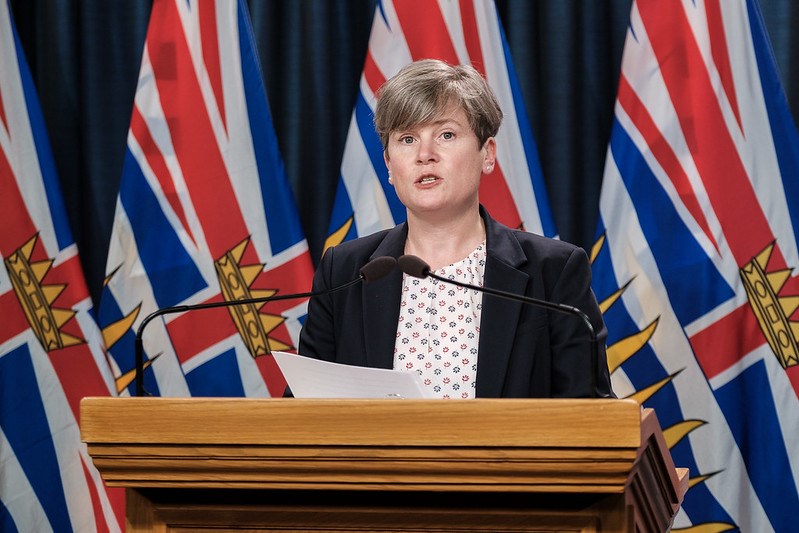Did you know BC Hydro can reach into its smart network and shut off your hot water heater when you need a shower in the morning, or lower your thermostat when you are curled up on the couch at night?
Probably not. But it turns out, Hydro is quietly up to all sorts of interesting new ways to directly control how you use its electricity.
So much effort has been focused recently on the B.C. government’s efforts to increase the supply of electricity, little attention has been paid to the way it is allowing BC Hydro to experiment in controlling the demand side.
Some of the programs, though, are eye-opening. Take for example the latest, called in which Hydro can lower your thermostat, shut off your hot water heater, turn off your electric vehicle charger and more during “peak time events.”
“Peak time events can happen any time of the day, but most commonly take place between 6 a.m. to 11 a.m., and 4 p.m. and 10 p.m.,” reads the website.
Right now, the program is in a kind of beta status, where you can sign up “voluntarily” and get a $50 annual credit per device.
In order to be eligible, you need specific internet-connected items like a Sinope-brand “load controller.” How would you get one of those, you ask? Simple, Hydro will give you one for free under a totally different “voluntary” program called the in which it offers up a bunch of gear to “help you manage your home’s energy use.”
That program is geared towards people who want to add new appliances or an electric vehicle charger to their home, but have maxed out the capacity and are facing a costly upgrade to their service panel. Hydro can solve that, in exchange for these new internet-connected switching devices that help manage the existing load.
Of course, there’s no mention in the energy capacity management trial that the gear you are getting for free could one day be used to remotely shut off your heat and hot water. Because, remember, all of this is “voluntary.” For now, anyway.
Energy Minister Josie Osborne said her government is “never going to consider this to be a mandatory program.”
But she sort of has to say that.
No politician in their right mind would come out and say they are allowing Hydro to lay the groundwork for a province-wide network of internet-connected energy devices that Hydro reserves the right to one day shut off.
The careful plausible deniability of what Hydro is doing, versus what it could do, is similar to how the current and former governments tip-toed around the issue of time-of-use pricing.
Time-of-use pricing makes perfect sense on paper, in that you charge higher electricity rates at peak times of the day to try and push people to use power in off-peak hours.
But it’s also political kryptonite. Try telling families they are going to pay more for electricity to run their ovens during dinner time because it just so happens to be the “peak” hours. Or, stand before voters and explain the financial penalty for using your hot water in the morning when you want to have a shower, because that’s a busy time for the grid.
Good luck. Most people can’t shift those behaviours. You just end up penalizing them for living their lives.
To avoid that kind of blowback, the NDP government and Hydro have made time-of-use pricing — you guessed it — “voluntary.” Again, for now.
Hydro’s proposed new system will give you a 5 cent per kilowatt hour credit for electricity used from 11 p.m. to 7 a.m., and ding you an extra 5 cent per kilowatt hour for electricity used during “peak” 4 p.m. to 9 p.m.
“This proposed rate could help you save on electricity costs if you shift some of your usage to off-peak periods,” reads the website.
“It's particularly beneficial to those who charge an EV at home and can charge overnight. You could also save money by shifting other household usage outside of the peak period, such as laundry and dishwashing.”
Curbing demand, and managing load, is a key part of Hydro’s multi-year strategy for ensuring the province has enough power to meet its needs.
By billing all of these new initiatives as “voluntary,” and accompanying them with rebates, Hydro is glossing over the fact it’s gaining more and more direct control of the internet-enabled electricity infrastructure in peoples homes.
“People are looking to be part of the solution and want to be part of an efficient energy system that’s cost effective for their homes – so this is an option for them to participate in,” said Osborne.
An option. For now. Until, one day, during a particularly cold winter when everyone is running their heaters, or a particularly hot summer when air-conditioners are going full bore, when Hydro removes the word “voluntary.”
Rob Shaw has spent more than 15 years covering B.C. politics, now reporting for CHEK 撸奶社区 and writing for Glacier Media. He is the co-author of the national bestselling book A Matter of Confidence, host of the weekly podcast Political Capital, and a regular guest on CBC Radio. [email protected]



.jpg;w=120;h=80;mode=crop)
